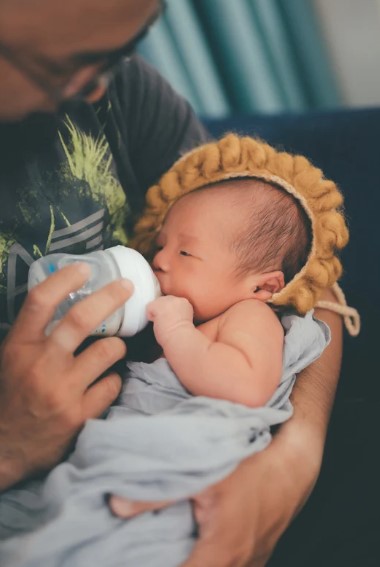Kirsten Fisch, MSN, RNC-MNN, IBCLC, LCCE Kirsten is a women's health nurse who specializes in high-risk pregnancy and postpartum care. She is certified in Maternal Newborn Nursing, a board-certified lactation consultant (IBCLC), and a Lamaze-certified childbirth Educator. She works with women from conception through postpartum. Passionate about empowering women during their reproductive journeys, Kirsten combines evidence-based care with compassionate support to promote health and well-being for mothers and babies.
Welcoming a newborn into the world is a joyous experience, but it also comes with significant challenges, especially for families managing limited resources. The Women, Infants, and Children (WIC) program has been a cornerstone in providing essential support to low-income families, ensuring that newborns receive the nutrition they need to thrive during their crucial early months.
What Is WIC?
The WIC program, officially known as the Special Supplemental Nutrition Program for Women, Infants, and Children, is a federally funded initiative in the United States. Established in 1974, WIC serves pregnant women, breastfeeding mothers, postpartum women, infants, and children up to age five who are at nutritional risk. The program provides access to nutritious foods, nutrition education, breastfeeding support, and healthcare referrals.

Why WIC Is Vital for Newborns
- Access to Essential Nutrition: WIC provides families with vouchers or electronic benefits for nutritious foods tailored to meet the dietary needs of infants, such as iron-fortified formula, baby food, and cereals. These items are specifically selected to support healthy growth and development.
- Breastfeeding Support: Breastfeeding offers numerous benefits for both newborns and mothers. WIC promotes breastfeeding through lactation consultations, educational materials, and access to breastfeeding supplies like pumps. This support empowers mothers to meet their breastfeeding goals.
- Health Monitoring: WIC clinics conduct regular health screenings to monitor growth and identify potential nutritional risks. Early detection allows families to address issues promptly with the help of healthcare referrals.
- Education for Families: WIC provides practical nutrition education, helping parents make informed choices about their family’s diet. Topics range from introducing solids to managing picky eating as infants grow.
How to Qualify for WIC
Eligibility for WIC is determined based on income, residency, and nutritional risk:
- Income: Families must meet income guidelines, which are set at or below 185% of the federal poverty level.
- Residency: Applicants must reside in the state where they apply.
- Nutritional Risk: A healthcare professional assesses whether the applicant is at risk of poor nutrition.
Steps to Apply
Newborns grow rapidly in their first year, and proper nutrition is critical for healthy development. WIC addresses this need in several impactful ways:
Applying for WIC is straightforward:
- Ask Your Postpartum Team: Your healthcare team, including your obstetrician, pediatrician, or lactation consultant, can provide valuable guidance on how to apply for WIC in your community. They often have information on local WIC offices and can help you navigate the process.
- Locate a WIC Office: Search online or contact your local health department to find a nearby WIC office.
- Schedule an Appointment: Call to set up an initial visit.
- Prepare Documentation: Bring proof of income, residency, and identification. For infants, you may also need their birth certificate or medical records.
The Broader Impact of WIC
WIC’s benefits extend beyond individual families. By ensuring newborns receive proper nutrition and support, the program contributes to lower healthcare costs, improved developmental outcomes, and stronger communities. Studies have shown that WIC participation reduces the incidence of low birth weight, enhances cognitive development, and improves overall family health.
The WIC program is more than a safety net; it’s a stepping stone for families navigating the challenges of early parenthood. For mothers and fathers striving to give their newborns the best possible start, WIC offers critical resources and a sense of community. By supporting programs like WIC, we invest in a healthier, brighter future for our children and society as a whole.

Kirsten Fisch, MSN, RNC-MNN, IBCLC, LCCE Kirsten is a women's health nurse who specializes in high-risk pregnancy and postpartum care. She is certified in Maternal Newborn Nursing, a board-certified lactation consultant (IBCLC), and a Lamaze-certified childbirth Educator. She works with women from conception through postpartum. Passionate about empowering women during their reproductive journeys, Kirsten combines evidence-based care with compassionate support to promote health and well-being for mothers and babies.



